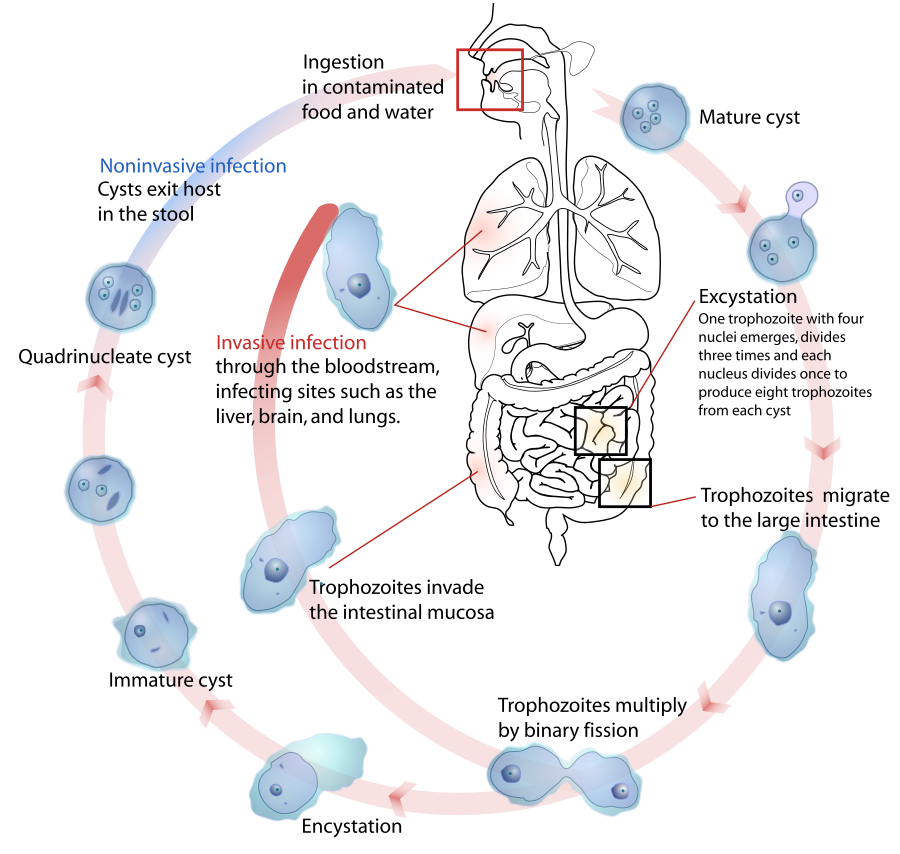Amebiasis is a parasitic intestinal infection caused by a parasite called Entamoeba histolytica, or E. histolytica. Amebiasis can affect; however, it is more common in places with poor sanitary conditions. Individuals can become infected if they consume food or water contaminated with feces. Additionally, an individual can be infected if they touch a contaminated surface and bring their hands to their mouth.
Amebiasis Symptoms
Amebiasis symptoms range from diarrhea, stomach pain, and stomach cramping to the more severe effects of amebic dysentery, including bloody stool, fever, and severe stomach pain. Most people don’t experience symptoms when infected, and only 10 to 20 percent of individuals experience mild symptoms about 2-4 weeks after exposure.
When a person becomes infected with amebiasis, they have E. histolytica cysts in their stool, which release a parasite called trophozoite in the digestive tract. Trophozoite reproduces in the large intestinal wall or colon, potentially leading to bloody stool, colitis, and stomach pain.
Who is at risk?
Whether or not an individual experiences symptoms, amebiasis is not an airborne contagion; it is spread through infected stool. This means that individuals that come into direct contact with infected feces can become infected. This includes:
- Putting anything into your mouth that has touched feces infected with E. histolytica cysts
- Swallowing food or water that was contaminated with E. histolytica (e.g. an infected food tender doesn’t wash hands)
- Picking up E.histolytica cysts from contaminated surface or fingers and swallowing it
- Having anal sex with an infected individual
Additionally, individuals can contract this disease by:
- Visiting or living in a place with poor sanitary conditions (e.g. drinking contaminated water)
- Living in an institution with poor sanitary conditions, such as a jail
- Eating food prepared by an infected individual who didn’t wash their hands
Amebiasis Treatment
If you believe you’ve contracted amebiasis, contact your doctor to schedule a test. They may schedule a stool or blood sample to determine if you’ve been infected. Oftentimes, amebiasis can be difficult to diagnose because some parasites look similar to E. histolytica under a microscope.
If your doctor determines that you’ve been infected with E. histolytica, they may choose to prescribe you HUMATIN™. To write a prescription, your doctor can download an enrollment form through the HUMATIN™ Total Care Program. From there, a dedicated coordinator will work closely with your insurance company to verify coverage and reimbursement benefits, provide financial assistance, and arrange medication delivery.
Entamoeba Lifecycle

Questions?
If you have questions about amebiasis or Humatin™, contact Humatin™ Total Care at 1.844.486.2846.